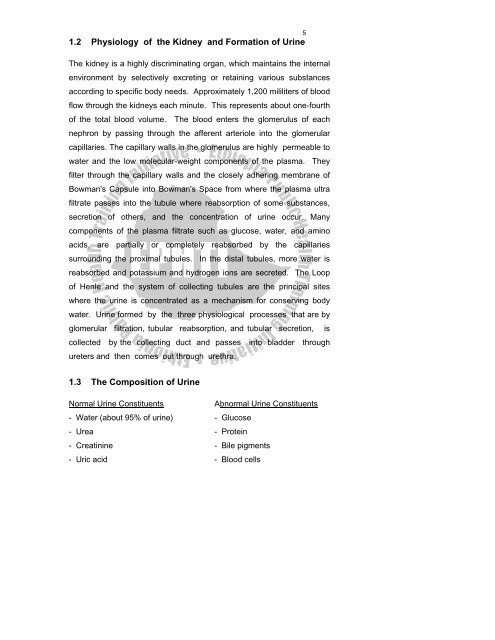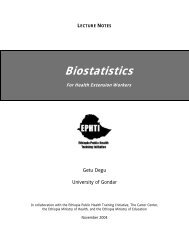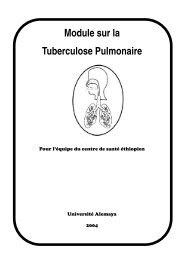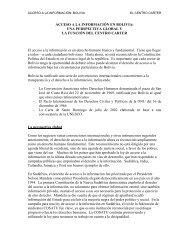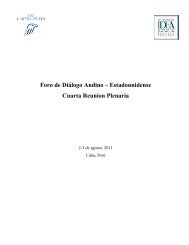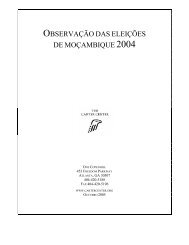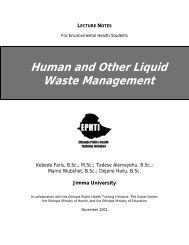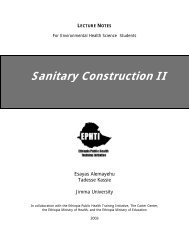Urinalysis - The Carter Center
Urinalysis - The Carter Center
Urinalysis - The Carter Center
You also want an ePaper? Increase the reach of your titles
YUMPU automatically turns print PDFs into web optimized ePapers that Google loves.
5<br />
1.2 Physiology of the Kidney and Formation of Urine<br />
<strong>The</strong> kidney is a highly discriminating organ, which maintains the internal<br />
environment by selectively excreting or retaining various substances<br />
according to specific body needs. Approximately 1,200 mililiters of blood<br />
flow through the kidneys each minute. This represents about one-fourth<br />
of the total blood volume. <strong>The</strong> blood enters the glomerulus of each<br />
nephron by passing through the afferent arteriole into the glomerular<br />
capillaries. <strong>The</strong> capillary walls in the glomerulus are highly permeable to<br />
water and the low molecular-weight components of the plasma. <strong>The</strong>y<br />
filter through the capillary walls and the closely adhering membrane of<br />
Bowman's Capsule into Bowman's Space from where the plasma ultra<br />
filtrate passes into the tubule where reabsorption of some substances,<br />
secretion of others, and the concentration of urine occur. Many<br />
components of the plasma filtrate such as glucose, water, and amino<br />
acids, are partially or completely reabsorbed by the capillaries<br />
surrounding the proximal tubules. In the distal tubules, more water is<br />
reabsorbed and potassium and hydrogen ions are secreted. <strong>The</strong> Loop<br />
of Henle and the system of collecting tubules are the principal sites<br />
where the urine is concentrated as a mechanism for conserving body<br />
water. Urine formed by the three physiological processes that are by<br />
glomerular filtration, tubular reabsorption, and tubular secretion, is<br />
collected by the collecting duct and passes into bladder through<br />
ureters and then comes out through urethra.<br />
1.3 <strong>The</strong> Composition of Urine<br />
Normal Urine Constituents<br />
Abnormal Urine Constituents<br />
- Water (about 95% of urine) - Glucose<br />
- Urea - Protein<br />
- Creatinine - Bile pigments<br />
- Uric acid - Blood cells


